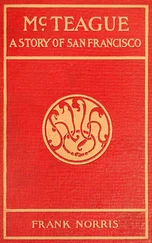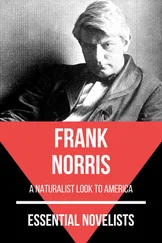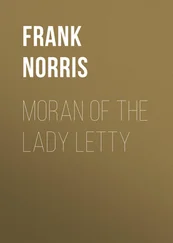Frank Norris - The Pit - A Story of Chicago
Здесь есть возможность читать онлайн «Frank Norris - The Pit - A Story of Chicago» — ознакомительный отрывок электронной книги совершенно бесплатно, а после прочтения отрывка купить полную версию. В некоторых случаях можно слушать аудио, скачать через торрент в формате fb2 и присутствует краткое содержание. Жанр: foreign_prose, literature_19, foreign_antique, на английском языке. Описание произведения, (предисловие) а так же отзывы посетителей доступны на портале библиотеки ЛибКат.
- Название:The Pit: A Story of Chicago
- Автор:
- Жанр:
- Год:неизвестен
- ISBN:нет данных
- Рейтинг книги:3 / 5. Голосов: 1
-
Избранное:Добавить в избранное
- Отзывы:
-
Ваша оценка:
- 60
- 1
- 2
- 3
- 4
- 5
The Pit: A Story of Chicago: краткое содержание, описание и аннотация
Предлагаем к чтению аннотацию, описание, краткое содержание или предисловие (зависит от того, что написал сам автор книги «The Pit: A Story of Chicago»). Если вы не нашли необходимую информацию о книге — напишите в комментариях, мы постараемся отыскать её.
The Pit: A Story of Chicago — читать онлайн ознакомительный отрывок
Ниже представлен текст книги, разбитый по страницам. Система сохранения места последней прочитанной страницы, позволяет с удобством читать онлайн бесплатно книгу «The Pit: A Story of Chicago», без необходимости каждый раз заново искать на чём Вы остановились. Поставьте закладку, и сможете в любой момент перейти на страницу, на которой закончили чтение.
Интервал:
Закладка:
To add to their discomfort, the North State Street cars were blocked. When they gained the corner of Washington Street they could see where the congestion began, a few squares distant.
"There's nothing for it," declared Landry, "but to go over and get the Clarke Street cars—and at that you may have to stand up all the way home, at this time of day."
They paused, irresolute, a moment on the corner. It was the centre of the retail quarter. Close at hand a vast dry goods house, built in the old "iron-front" style, towered from the pavement, and through its hundreds of windows presented to view a world of stuffs and fabrics, upholsteries and textiles, kaleidoscopic, gleaming in the fierce brilliance of a multitude of lights. From each street doorway was pouring an army of "shoppers," women for the most part; and these—since the store catered to a rich clientele—fashionably dressed. Many of them stood for a moment on the threshold of the storm-doorways, turning up the collars of their sealskins, settling their hands in their muffs, and searching the street for their coupes and carriages.
Among the number of those thus engaged, one, suddenly catching sight of Laura, waved a muff in her direction, then came quickly forward. It was Mrs. Cressler.
"Laura, my dearest girl! Of all the people. I am so glad to see you!" She kissed Laura on the cheek, shook hands all around, and asked about the sisters' new home. Did they want anything, or was there anything she could do to help? Then interrupting herself, and laying a glove on Laura's arm:
"I've got more to tell you."
She compressed her lips and stood off from Laura, fixing her with a significant glance.
"Me? To tell me?"
"Where are you going now?"
"Home; but our cars are stopped. We must go over to—"
"Fiddlesticks! You and Page and Mrs. Wessels—all of you are coming home and dine with me."
"But we've had dinner already," they all cried, speaking at once.
Page explained the situation, but Mrs. Cressler would not be denied.
"The carriage is right here," she said. "I don't have to call for Charlie. He's got a man from Cincinnati in tow, and they are going to dine at the Calumet Club."
It ended by the two sisters and Mrs. Wessels getting into Mrs. Cressler's carriage. Landry excused himself. He lived on the South Side, on Michigan Avenue, and declaring that he knew they had had enough of him for one day, took himself off.
But whatever Mrs. Cressler had to tell Laura, she evidently was determined to save for her ears only. Arrived at the Dearborns' home, she sent her footman in to tell the "girl" that the family would not be home that night. The Cresslers lived hard by on the same street, and within ten minutes' walk of the Dearborns. The two sisters and their aunt would be back immediately after breakfast.
When they had got home with Mrs. Cressler, this latter suggested hot tea and sandwiches in the library, for the ride had been cold. But the others, worn out, declared for bed as soon as Mrs. Cressler herself had dined.
"Oh, bless you, Carrie," said Aunt Wess'; "I couldn't think of tea. My back is just about broken, and I'm going straight to my bed."
Mrs. Cressler showed them to their rooms. Page and Mrs. Wessels elected to sleep together, and once the door had closed upon them the little girl unburdened herself.
"I suppose Laura thinks it's all right, running off like this for the whole blessed night, and no one to look after the house but those two servants that nobody knows anything about. As though there weren't heaven knows what all to tend to there in the morning. I just don't see," she exclaimed decisively, "how we're going to get settled at all. That Landry Court! My goodness, he's more hindrance than help. Did you ever see! He just dashes in as though he were doing it all, and messes everything up, and loses things, and gets things into the wrong place, and forgets this and that, and then he and Laura sit down and spoon. I never saw anything like it. First it's Corthell and then Landry, and next it will be somebody else. Laura regularly mortifies me; a great, grown-up girl like that, flirting, and letting every man she meets think that he's just the one particular one of the whole earth. It's not good form. And Landry—as if he didn't know we've got more to do now than just to dawdle and dawdle. I could slap him. I like to see a man take life seriously and try to amount to something, and not waste the best years of his life trailing after women who are old enough to be his grandmother, and don't mean that it will ever come to anything."
In her room, in the front of the house, Laura was partly undressed when Mrs. Cressler knocked at her door. The latter had put on a wrapper of flowered silk, and her hair was bound in "invisible nets."
"I brought you a dressing-gown," she said. She hung it over the foot of the bed, and sat down on the bed itself, watching Laura, who stood before the glass of the bureau, her head bent upon her breast, her hands busy with the back of her hair. From time to time the hairpins clicked as she laid them down in the silver trays close at hand. Then putting her chin in the air, she shook her head, and the great braids, unlooped, fell to her waist.
"What pretty hair you have, child," murmured Mrs. Cressler. She was settling herself for a long talk with her protege. She had much to tell, but now that they had the whole night before them, could afford to take her time.
Between the two women the conversation began slowly, with detached phrases and observations that did not call necessarily for answers—mere beginnings that they did not care to follow up.
"They tell me," said Mrs. Cressler, "that that Gretry girl smokes ten cigarettes every night before she goes to bed. You know the Gretrys—they were at the opera the other night."
Laura permitted herself an indefinite murmur of interest. Her head to one side, she drew the brush in slow, deliberate movements downward underneath the long, thick strands of her hair. Mrs. Cressler watched her attentively.
"Why don't you wear your hair that new way, Laura," she remarked, "farther down on your neck? I see every one doing it now."
The house was very still. Outside the double windows they could hear the faint murmuring click of the frozen snow. A radiator in the hallway clanked and strangled for a moment, then fell quiet again.
"What a pretty room this is," said Laura. "I think I'll have to do our guest room something like this—a sort of white and gold effect. My hair? Oh, I don't know. Wearing it low that way makes it catch so on the hooks of your collar, and, besides, I was afraid it would make my head look so flat."
There was a silence. Laura braided a long strand, with quick, regular motions of both hands, and letting it fall over her shoulder, shook it into place with a twist of her head. She stepped out of her skirt, and Mrs. Cressler handed her her dressing-gown, and brought out a pair of quilted slippers of red satin from the wardrobe.
In the grate, the fire that had been lighted just before they had come upstairs was crackling sharply. Laura drew up an armchair and sat down in front of it, her chin in her hand. Mrs. Cressler stretched herself upon the bed, an arm behind her head.
"Well, Laura," she began at length, "I have some real news for you. My dear, I believe you've made a conquest."
"I!" murmured Laura, looking around. She feigned a surprise, though she guessed at once that Mrs. Cressler had Corthell in mind.
"That Mr. Jadwin—the one you met at the opera."
Genuinely taken aback, Laura sat upright and stared wide-eyed.
"Mr. Jadwin!" she exclaimed. "Why, we didn't have five minutes' talk. Why, I hardly know the man. I only met him last night."
But Mrs. Cressler shook her head, closing her eyes and putting her lips together.
Читать дальшеИнтервал:
Закладка:
Похожие книги на «The Pit: A Story of Chicago»
Представляем Вашему вниманию похожие книги на «The Pit: A Story of Chicago» списком для выбора. Мы отобрали схожую по названию и смыслу литературу в надежде предоставить читателям больше вариантов отыскать новые, интересные, ещё непрочитанные произведения.
Обсуждение, отзывы о книге «The Pit: A Story of Chicago» и просто собственные мнения читателей. Оставьте ваши комментарии, напишите, что Вы думаете о произведении, его смысле или главных героях. Укажите что конкретно понравилось, а что нет, и почему Вы так считаете.












